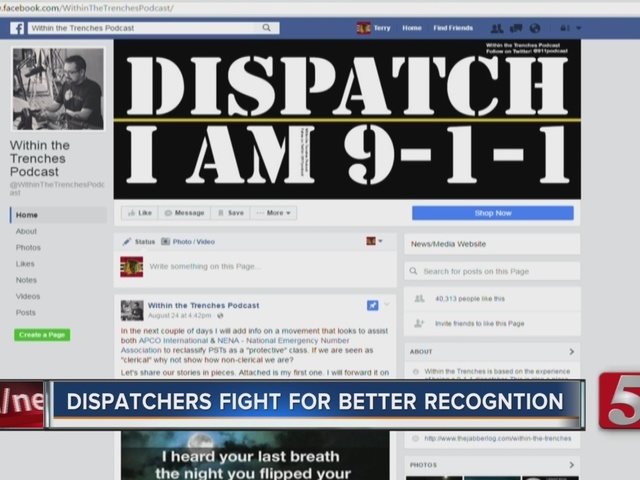Emergency operators across the country have joined a social media movement highlighting just how tough their job is.
Richard Martinez, a Michigan dispatcher, started the #IAM911 movement over the summer and dispatchers across the country have been sharing their stories.
"We are truly the first responders when it comes to a 911 call," Spring Hill 911 Director Brandi Arabie-Smith told NewsChannel 5. "We help perform CPR, pull someone from a sinking vehicle, our job is so much more than it was 20 years ago."
Officials with Spring Hill Emergency Communications have joined the social media effort. Aside from the rigorous work schedule, dispatchers want people to know the emotional toll it leaves behind.
Arabie-Smith has worked as a dispatcher for 20 years, even working through Hurricane Katrina.
"When I first started a gentleman on the other end told me he was going to kill himself, and when I asked if I had a weapon, I heard a gunshot," Arabie-Smith added. "You don't forget the gunshot."
Most recently, the Association of Public-Safety Communications (APCO) has taken action to give dispatchers a better recognition.
The Office of Management and Budget (OMB) is a federal group that provides a Standard Occupation Classification (SOC) to agencies. The SOC determines that agency's status.
The classification of 911 dispatchers has always been considered clerical and not protective like firefighters and police.
APCO said the job is more serious saying,"...we argued the classification within the Office and Administrative Support major group is inappropriate given the stress, training, and life-saving nature of the tasks performed by Public Safety Telecommunicators. Unlike non-emergency dispatchers, PSTs receive calls from people whose lives are in danger."
However, OMB said in a statement:
"The work performed is that of a dispatcher, not a first responder. Most dispatchers are precluded from administering actual care, talking someone through procedures, or providing advice. Moving the occupation to the Protective Services major group is not appropriate separating them from other dispatchers would be confusing."
APCO is seeking public input by submitting formal comments on their website and contact their U.S. Senators.
The goal is to change the title to "Public Safety Telecommunicators" and be classified as a "protective" occupation.
"This is something that is needed," Arabie-Smith said. "It's acknowledgement that you're the first responder, you're the lifeline, you're the one who sets the whole system into motion."
To learn more, click on this link.



